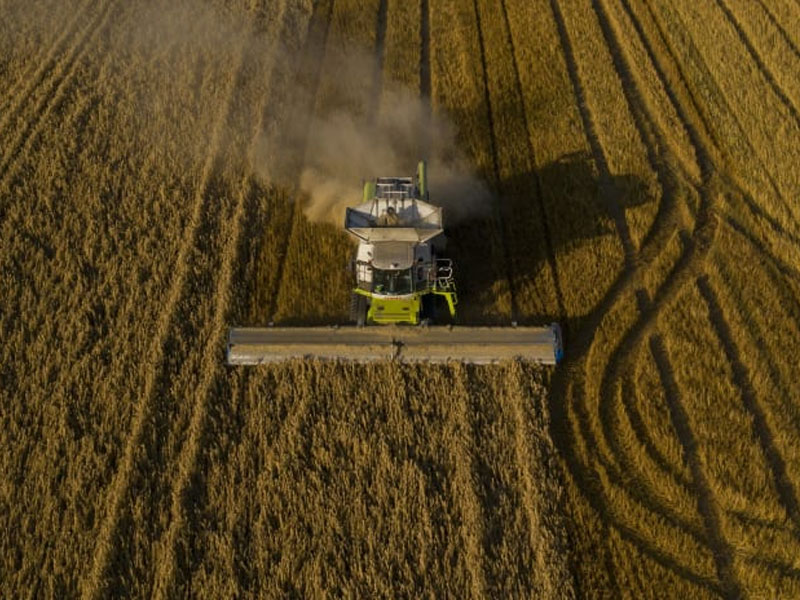UK becomes first to approve Casgevy genetic therapy for blood disorders
SOURCE: HTTPS://INTERESTINGENGINEERING.COM/
NOV 17, 2023
How gene editing works
SOURCE: THEWEEK.CO.UK
OCT 29, 2021

Dan Kitwood/Getty Images
Regulations on researching gene-edited crops are to be eased, says the government, paving the way for genetically engineered produce to be grown in England.
The government said the easing of regulations was a “first step” towards relaxing the rules covering gene manipulation in agriculture with the move designed to “cut red tape and make research and development easier”.
“Gene editing has the ability to harness the genetic resources that nature has provided,” Environment Secretary George Eustice said in a statement announcing the changes. “It is a tool that could help us… to tackle some of the biggest challenges that we face – around food security, climate change and biodiversity loss.”
The rule changes are now possible in England due to our departure from the EU, says the government document. As devolved nations, Scotland, Wales and Northern Ireland will be able to set their own rules.
The changes follow a consultation on departing from EU rules, which currently “treat gene editing similarly to other genetic modification and impose tough restrictions on its use”, reported the Financial Times, although the European Commission has announced its own review of the rules around the use of gene-editing technology in agriculture.
What is gene editing and how does it work?
“GM is a technology that involves inserting DNA into the genome of an organism,” explained the Royal Society. “To produce a GM plant, new DNA is transferred into plant cells”. A genome is the complete set of genetic instructions of an organism.
These cells are then “grown in a tissue culture where they develop into plants”, and the seeds then produced by these plans will “inherit the new DNA”, added the Society, the national academy of science.
During the modification process, a specific stretch of DNA is added into the plant’s genome, which will give it “new or different characteristics”, such as making the plant more resistant to disease, or more resilient to the environment it is growing in.
How is it different to genetic modification?
“Gene-edited (GE) crops have much simpler genetic alterations than so-called genetically modified (GM) ones,” said the BBC.
While GM crops “often involve the addition of extra genes, sometimes from a completely different species”, GE crops usually “just have genes snipped out of them”.
This leads to the creation of new varieties of crops that could have been “produced more slowly by natural breeding processes”, said the government document announcing the rule changes.
Ultimately, it means we can “achieve the outcomes of plant breeding, which has been so successful in improving crop yields, but in a much more precise manner”, explained The Guardian.
And new genetic technologies such as gene-editing could be “vital in achieving net-zero carbon agriculture within the critical timeframe”, added the paper.
What will happen next?
Legislation will be passed later this year “to do away with” the need for scientists to apply for a licence to carry out open-air trials of a gene-edited crop that could have been produced through traditional cross-breeding, reported the BBC. Then, “the more significant change” will come next year when legislation will be brought forward to “enable simple gene-edited crops to be regulated in the same way as any new variety for commercial development”, said the broadcaster. But opponents of the proposals argue that the technology will be used to "further corporate interests rather than tackling the underlying problems faced by agriculture” such as a lack of crop diversity, reported Reuters.
“Changing the DNA of crops and animals to make them temporarily immune to disease is not a long-term solution; we should be investing in solutions that deal with the cause of disease and pests in the first place,” said Joanna Lewis, director of policy and strategy at the Soil Association.
Gene-edited crops will still be subject to rules such as those governing the introduction of “novel foods” which require pre-market authorisation, said the Financial Times.
The government announcement also reveals plans to review its rules covering genetically modified organisms “in the longer term”.
LATEST NEWS
WHAT'S TRENDING


Data Science
5 Imaginative Data Science Projects That Can Make Your Portfolio Stand Out
OCT 05, 2022

SOURCE: HTTPS://INTERESTINGENGINEERING.COM/
NOV 17, 2023
SOURCE: HTTPS://GENETICLITERACYPROJECT.ORG/
SEP 05, 2023
SOURCE: HTTPS://WWW.SCIENCEDAILY.COM/
AUG 07, 2023
SOURCE: HTTPS://WWW.SCIENCEDAILY.COM/
JUL 24, 2023
SOURCE: HTTPS://NEWS.MIT.EDU
JUL 20, 2023
SOURCE: BIOSPACE.COM
OCT 27, 2022